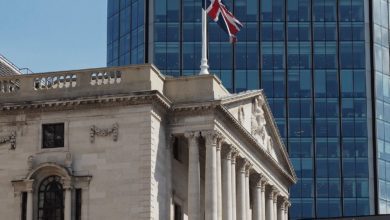UK quarterly GDP beats expectations despite slowdown
It could mean that the UK has the strongest GDP growth in the G7 for the first half of the year although Japan is yet to reveal its data

Register to get 1 free article
Reveal the article below by registering for our email newsletter.
Want unlimited access? View Plans
Already have an account? Sign in
UK GDP grew 0.3% in the three months to June, behind the 0.7% it grew in the first quarter, as a result of US tariffs and higher business costs, according to data from the Office for National Statistics (ONS).
However, it is better than expected growth as economists polled by Reuters and the Bank of England had only anticipated GDP expansion of 0.1% across April to June. It comes after a better than expected June, which saw GDP grow 0.4%.
Caution from customers and higher costs for employers, were the reasons why growth did not look positive in the months up until June. Employers had to deal with the increased national minimum wage and higher national insurance contributions, suppressing growth.
Economic activity in April and May, in particular, was weak as purchases were brought forward to early in the year to avoid the changes to stamp duty and the effects of tariffs.
Household costs also rose in April as energy, water and council tax bills rose, leading to higher inflation overall.
ONS stated that the growth came from services, the largest sector of the economy, with computer programming, health and vehicle leasing performing well.
It could mean that the UK has the strongest GDP growth in the G7 for the first half of the year although Japan is yet to reveal its data.
Ben Jones, CBI lead economist, said: “A modest rebound in June brought Q2 to a positive close, but today’s figures confirm that the strong growth seen earlier this year was a one-off and underlying conditions remain fragile.
“With business costs mounting, the labour market cooling, investment intentions weakening and confidence generally subdued, the UK is walking a narrow path between resilience and stagnation.”
He added: “Policy uncertainty in the run-up to the Autumn Budget risks tipping the balance. With the business tax burden already at a 25-year high, the government must chart a steadier course by ruling out further tax rises and prioritising policies that can quickly lift investment and productivity.”







